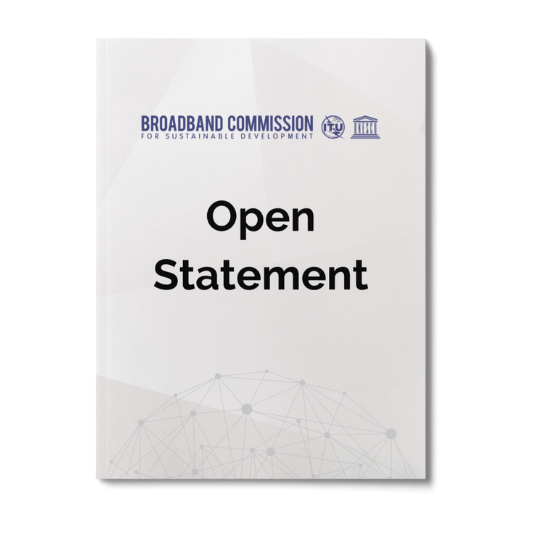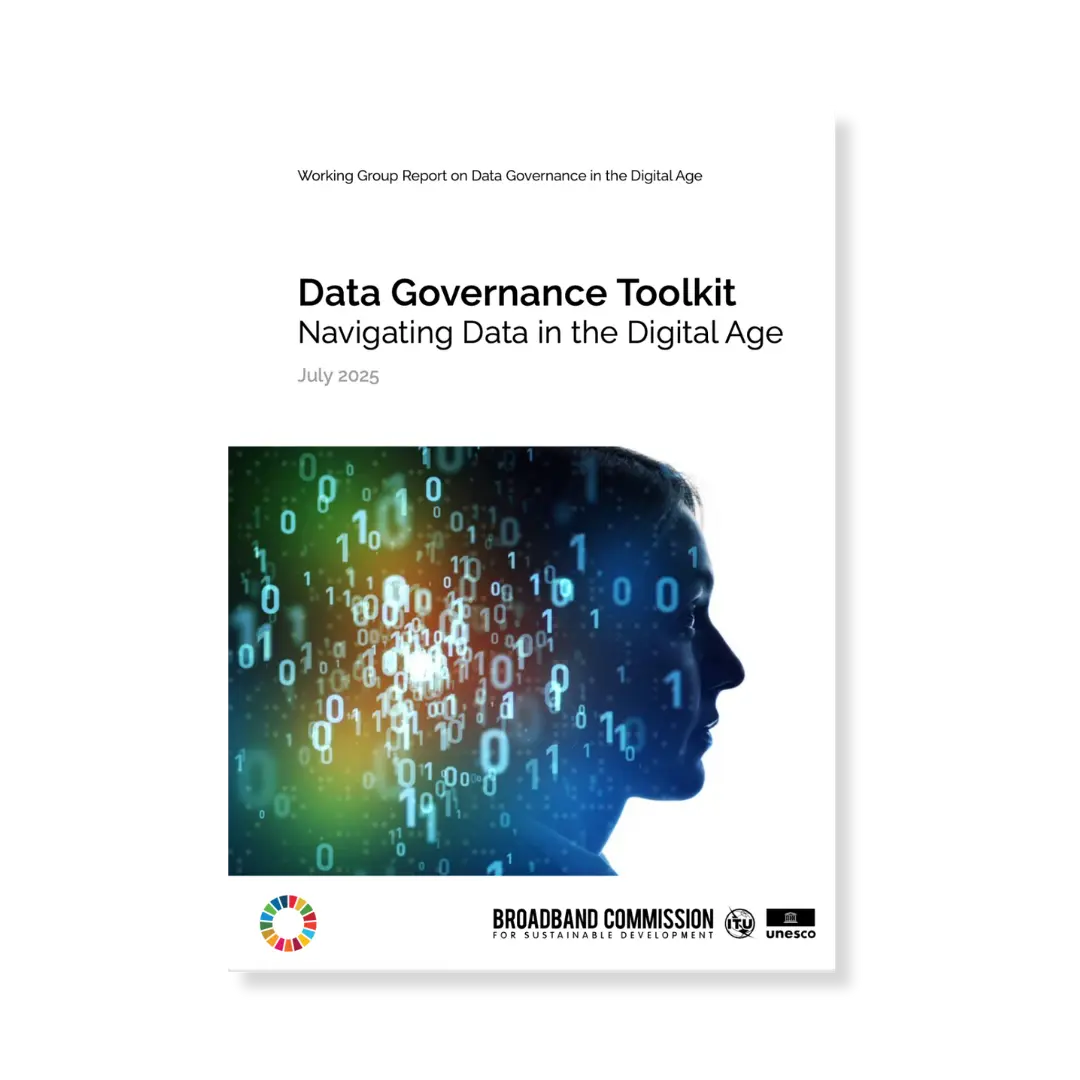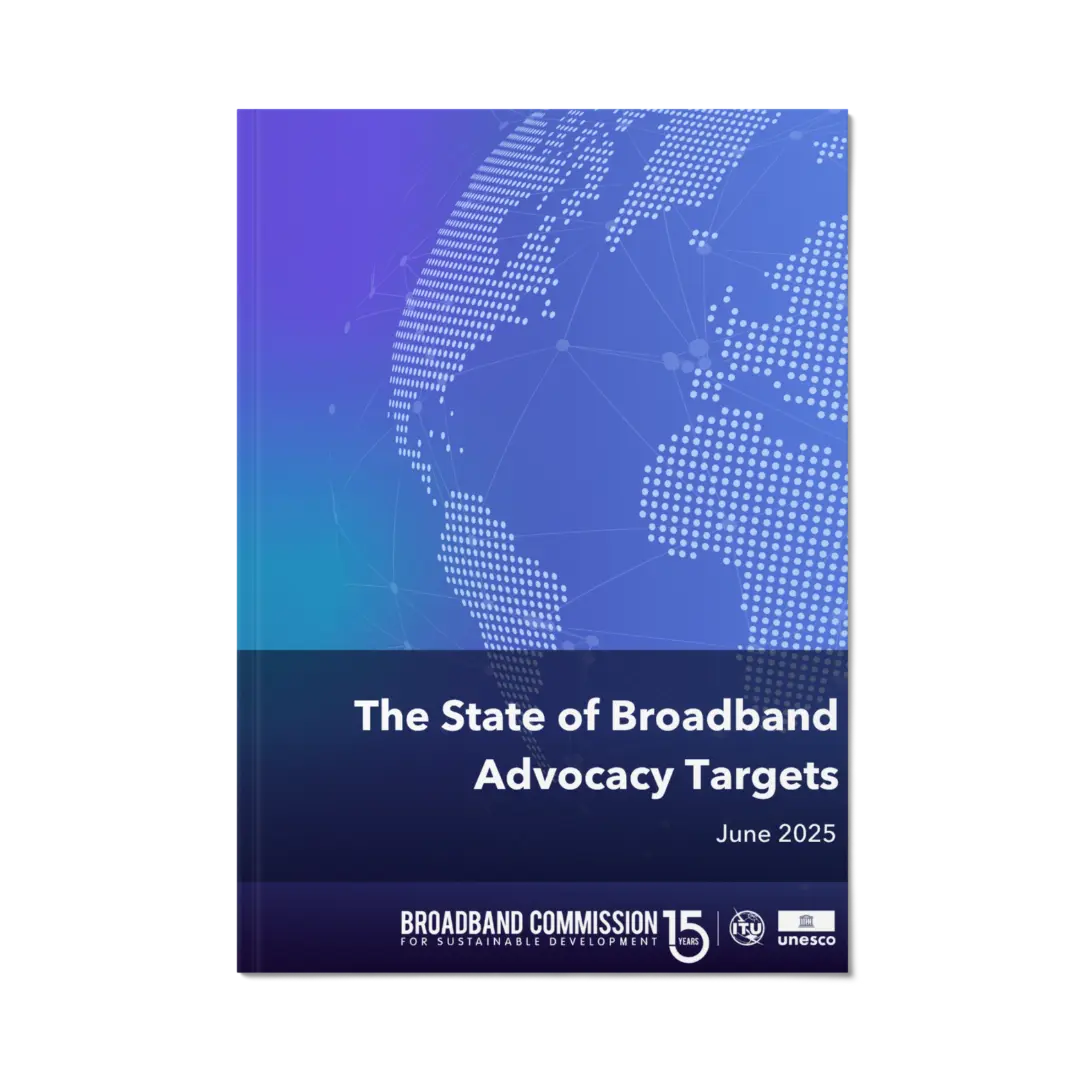The UN Broadband Commission for Sustainable Development addresses this Open Statement to the Formal Consultation on the Global Compact on Refugees on the importance of broadband connectivity for refugees.
We, the UN Broadband Commission for Sustainable Development , affirm our sincere conviction and belief in the vital role of broadband services and applications in connecting and providing a vital lifeline to refugees fleeing devastation and persecution.
According to UNHCR’s figures, more than 65 million people have been forced to flee their home – the highest number since World War II – including more than 18.5 million refugees. This does not include additional large numbers of other displaced people and internally displaced refugees. Many refugees live in remote, rural locations, or in urban environments with little or no access to the Internet. Without even basic forms of connectivity, refugees can struggle to obtain information, maintain contact with loved ones, benefit from educational opportunities, access basic services or link with the communities around them.
Internet access can play a crucial role for people undertaking difficult and traumatic journeys to safety, providing a potential lifeline to call for help, supplying up-to-date information on the security situation in their location, detailing how and where to access life-saving assistance and allowing them to inform relatives that they are safe.
Once in their country of asylum, Internet connectivity can be a powerful tool for helping refugees to rebuild their lives. Broadband connectivity enables access to digital cash transfer programmes and other digital financial services that can build financial resilience and support livelihood recovery. Both children and adults can take part in distance learning programmes, allowing them to continue their education and further develop their skills for the workplace. Refugees are also better able to rely on themselves and to become more self-sustainable and lead more productive lives, improving their own economic prosperity. Secure broadband connectivity can promote income generation and job creation, as it allows refugees to use digital tools to launch and grow their businesses, and engage more easily in trade with new market partners, including across borders.
Host communities are more likely to welcome refugees with whom they are in close contact through online networks, allowing for better levels of integration and strengthened community relations. Areas hosting refugees can benefit from infrastructure improvements, as domestic mobile operators and tech companies seek to benefit from an increased customer base. For example, many refugee centers in Slovenia are equipped with broadband connections. Satellite operators are capable of providing broadband connectivity quickly and cost-effectively, using existing assets, irrespective of the state of existing terrestrial infrastructure.
ITU’s most recent research presents an optimistic outlook, finding that, at the global level, basic 2G coverage now reaches most of the global population, due to the diminishing costs – according to ITU’s Global Regulatory Outlook 2017, in 2016, 95% of the global population was covered by a 2G mobile signal, and 84% by mobile broadband. However, refugees often find themselves facing significant barriers that prevent them from enjoying the benefits of the global expansion of Internet coverage. Refugees in rural environments in particular struggle, where rural digital divides persist and one fifth of refugees may find themselves with no connectivity at all, according to UNHCR.
This can lead to many refugee communities being excluded from regulatory definitions of addressable populations and monitoring for universal service of telecommunications/ICTs [ITU annual Telecom Regulatory Survey, 2017]. When telecom regulators and other government agencies include refugees in appropriate policy and regulatory frameworks, this can create crucial incentives for technology service providers to expand their infrastructure and coverage, as well as electricity coverage. They can also play a key role in facilitating access to SIM cards and connectivity plans for refugees.
All types of broadband networks, terrestrial and satellite, are vital for improving the quality of life and wellbeing of refugees and displaced persons. Let us grasp the opportunity offered by digital inclusion to ensure that everyone, including displaced persons and refugees, can potentially experience the opportunities and benefits of universal, affordable and inclusive access to broadband services. We urge you to enhance the policy environment to connect up refugee communities with broadband connectivity to connect the world with broadband and social digital inclusion.





